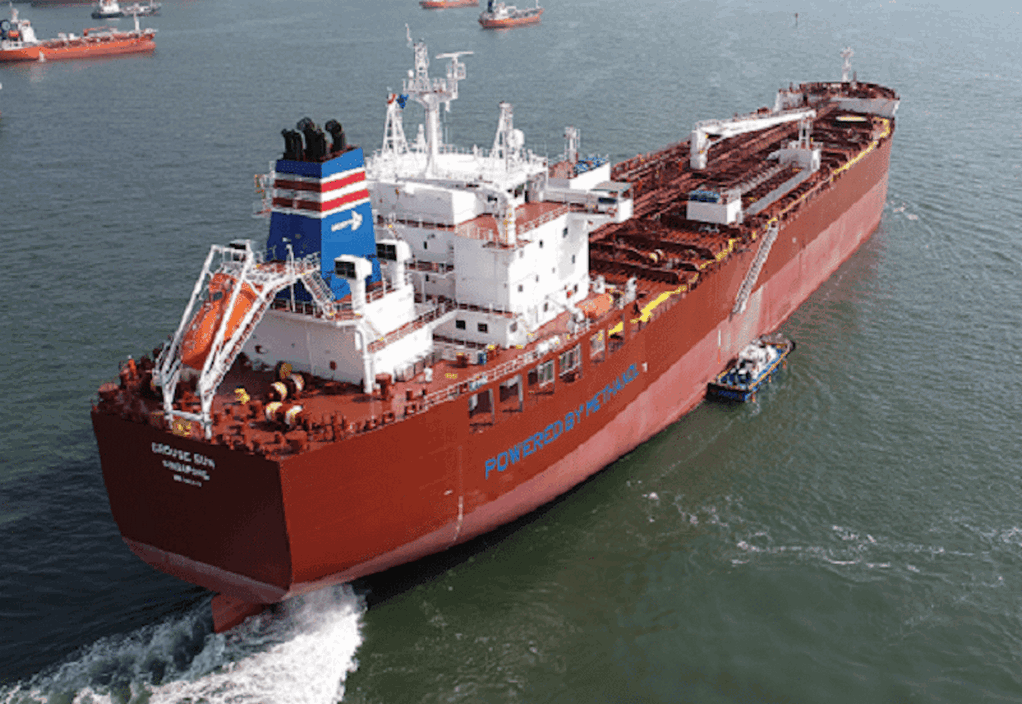Japanese shipping group NYK has taken delivery of a third methanol-fueled chemical tanker, named Grouse Sun, from Hyundai Mipo Dockyard in Korea.
The ship was handed over April 19th to Singapore-based owner NYK Bulkship (Asia), an NYK Group company, and will enter into a long-term charter to Waterfront Shipping, under NYK Shipmanagement management.
Grouse Sun is fitted with a dual-fuel engine that can burn both heavy fuel oil and also methanol. The 30,873 deadweight tonne ship measures 186 meters in overall length and 32.20 meters wide. NYK says that by adding water to methanol to lower its temperature during combustion, the tanker can comply with the IMO’s stringent Tier III NOx emission standard without the need for an exhaust gas recirculation (EGR) system and a selective catalytic reduction (SCR) device.
Delivery of the vessel to NYK follows delivery of the Seymour Sun this past January and Takaroa Sun in 2019.
Waterfront Shipping is a subsidiary of the world’s largest methanol producer, Methanex Corporation, and operates the world’s largest methanol tanker fleet comprising of 30 deep-sea tankers, a number of which are powered by methanol fuel.
As a marine fuel, methanol can reduce sulphur oxides (SOx) emissions by up to 99 percent, particulate matter (PM) emissions by up to 95 percent, nitrogen oxides (NOx) by up to 80 percent, and CO2 emissions by up to 15 percent compared to conventional marine fuels. Methanol produced from renewable sources can reduce CO2 emissions by up to 95 percent.
Source: https://www.nyk.com/
Tags: Grouse Sun, Hyundai, Japan, Methanol, NYK



Recent Posts
Port of Brisbane Unveils Vision 2060 to Drive Smarter, Cleaner, and More Connected Future
Wärtsilä to Deliver Hybrid Propulsion Systems for Vertom Group’s New Low-Emission Vessels
Latvian port receives electric Konecranes Gottwald Mobile Harbor Crane
Sustainable Ocean Economy Vital for Human Development, Says UNDP at UN Ocean Conference
Green Hydrogen Costs in India Could Drop by 40%, Says IEEFA-JMK Report
Cavotec Secures €1.55 Million Shore Power Contract for Port of Antwerp-Bruges
APM Terminals and SANY Marine sign landmark agreement to accelerate decarbonisation
The Port of Gothenburg takes big step towards shore power connection for container and car/RoRo vessels